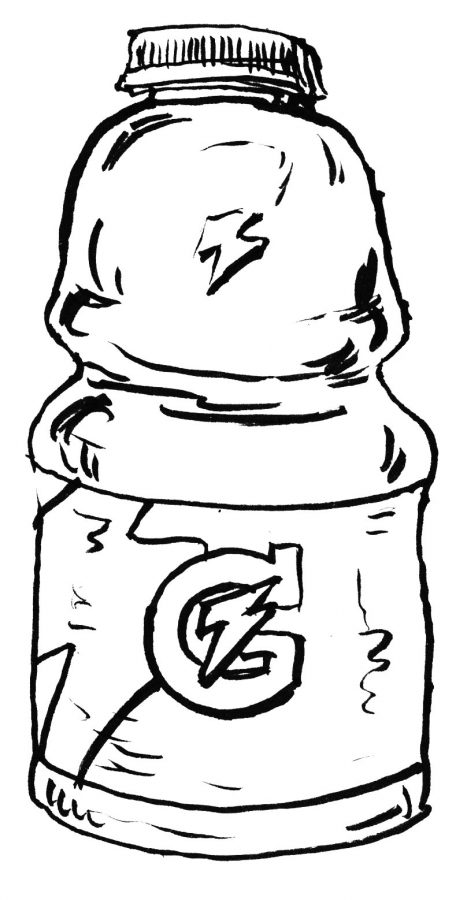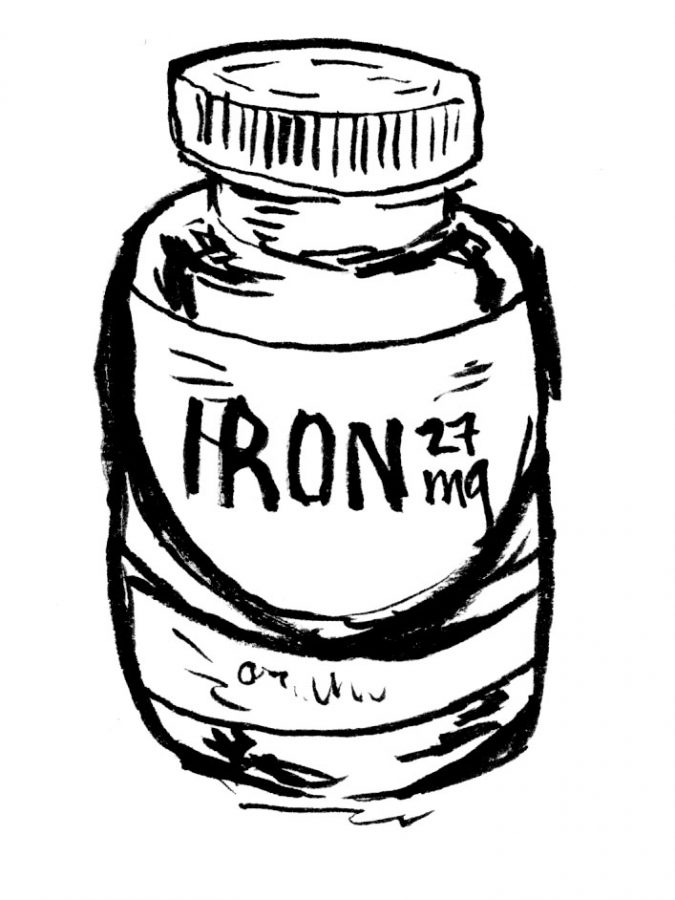Debunking the Myths of Sports Supplements
Gatorade
The myth of whether gatorade enhances performance has been debated since its creation, but despite this negative doubt surrounding the drink it has been incredibly successful. The drink was first created when David Douglas, an assistant football coach at the University of Florida,  noticed how players lost as much as 18 pounds in sweat during a football game. Douglas spoke to the medical staff, sparking the debate of how to resolve this issue, resulting in the creation of a sports drink, eventually called Gatorade.
noticed how players lost as much as 18 pounds in sweat during a football game. Douglas spoke to the medical staff, sparking the debate of how to resolve this issue, resulting in the creation of a sports drink, eventually called Gatorade.
“Gatorade is used to replenish what you’ve lost in your sweat, which is water, sodium and a small amount of potassium, while also providing you with glucose for your brain,” says Jones-Isaac, a certified athletic trainer at Children’s Hospital and for all Garfield sports.
But to this day, Gatorade is highly misused.
“Gatorade has a lot of science behind it and is good for certain situations. It’s useful for athletes that sweat and work hard for over an hour, however if you are under this limit then Gatorade should not be utilized,” says Jones-Isaac.
Another issue revolving around Gatorade is that it has been used in schools and for non athletic purposes.
“The problem with Gatorade is that it was pushed as a healthy option in general, and you would start to see it in schools and vending machines. But in reality it could actually be worse than drinking regular soda due its sugar content,” says Jones-Isaac.
The average 32 oz. Gatorade bottle contains a whopping 56 grams of sugar, barely less than most sodas.
But for some, Gatorade has a large impact on their given workouts. Ian Sample, a math teacher at Garfield often does jiu jitsu and uses the sport drink nearly every day.
“In a mellow workout, I notice that the Gatorade has no effect, but when I’m really sweating bullets I notice an increase in both energy and endurance,” says Sample.
Overall, Gatorade has supreme advantages in replenishing fluids, hydration, and providing the essentials that water lacks. But it is important to know that the drink is meant specifically for intensive workouts rather than a casual setting. Before you purchase gatorade before your next big game, make sure you’re following the intended use in order to prevent a sugar crash mid-play.
Iron
Recent Studies have shown that having iron deficiency, also known as anemia, is the most common nutritional disorder in the world. Iron helps carry carbon dioxide and oxygen in the blood, a component that is necessary for a healthy body. Because of this, people with anemia have to take iron supplements daily to keep their iron levels healthy.
 “When you take iron, it produces more hemoglobin, and that strengthens you, but when you don’t have enough iron, you feel weaker,” said Stern.
“When you take iron, it produces more hemoglobin, and that strengthens you, but when you don’t have enough iron, you feel weaker,” said Stern.
Though typically only people with iron deficiencies take iron supplements, it is common for athletes with healthy iron levels to take iron supplements. Junior Lena Stern has been taking iron supplements since she began running.
“From the start, I’ve always taken iron, but I feel like if I didn’t take it so regularly, I would see more negative affects,” said Stern. According to Stern, the older girls on the team recommended that she take irons supplements as a precaution for the iron deficiency that is so common in female athletes.
It is particularly common for runners to experience an iron deficiency due to loss of iron through sweating, low intake of iron rich foods and destruction of red blood cells through footstriken..
Sophomore Isabel Schmidt had to sit out a majority of the 2016 spring track season because she suffered from an iron deficiency. She first noticed that something was off when she was putting in just as much effort at practice, but her times were getting slower.
“I just couldn’t get myself to go faster, even though I was putting in the same amount effort.” said Schmidt. “[Running] was becoming not fun for me anymore because I was trying really hard but I was no longer fast, and I was no longer able to work to my full potential. It was just very frustrating.”
In retrospect, Schmidt wishes that she had taken iron when she started running, like Stern had, so she could have participated in the 2016 track season.
“I’m not currently iron deficient,” said Schmidt. “Once I started taking iron supplements, I was able to get my iron levels up, and I was just able to function normally again”
Caffeine
For the average high school student, caffeine has become a necessity. Caffeine is similar to the molecule adenosine in the brain. The caffeine molecules bind to adenosine receptors in brain cells, which blocks the adenosine itself and prevents the brain from realizing your body needs sleep or is depleted.
“I use caffeine to get me through the day, and when I’m working out. Caffeine gets me super hyped and energized, and helps me work harder,” says sophomore rower Grace Babonas. “I drink coffee once or twice a day, and Shot Bloks before almost every workout.”
Products like Shot Bloks, small chewable snacks that contain high levels of simple carbohydrates and caffeine, have gained popularity among athletes in recent years. A package of Shot Bloks contains about as much caffeine as a cup of coffee, and are designed to be consumed fifteen minutes before a workout in order to increase blood sugar levels.
Despite these products’ popularity, many athletes still refuse to use them.
“I try to avoid caffeine because it’s addictive. There are cases of caffeine overdose, and people who die from consuming too much of it. It’s a drug that alters your body’s chemistry,” said Garfield teacher and girls’ soccer coach Jeremy Lugo.
Although deaths from caffeine overdoses are incredibly rare, they have happened. In 2009, a man in Australia died from a heart attack after consuming 8 cans of an energy drink. James Stone, a 19 year old American, died after taking two dozen caffeine pills, which contain as much of the drug as 500 cups of coffee.
Many students realize these negative risks, but continue to consume caffeine because they see it as a necessity.
“It’s a chemical, but it’s a helpful one that makes working out easier and with the stress of high school, you need something extra like that,” said Babonas.
Although it is absolutely possible to succeed as an athlete without the help of caffeine, a study by Rice University does show its benefits.
“Caffeine can enhance performance in endurance sports. Caffeine mobilizes fat stores and encourages working muscles to use fat as a fuel. This delays the depletion of muscle glycogen and allows for a prolongation of exercise,” said the study.
When it comes down to it, caffeine is a helpful energy source, especially for endurance athletes. There can be some long term drawbacks if you choose to consume the chemical every day, so be smart about choosing when you need it and when you don’t.



